Covid-19 has now killed more people in Africa than ebola
It is far deadlier and was the cause of thousands of deaths across Africa. But now Covid-19 is responsible for killing more people than ebola.
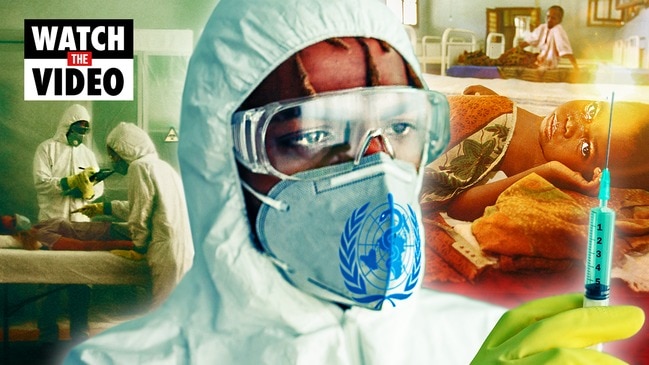
As the world continues to grapple with the Covid-19 pandemic, it’s easy to forget that other highly infectious and deadly disease that ravaged Africa from 2014 – Ebola.
Only a few other infectious diseases – like rabies, anthrax and pneumonic plague – are as deadly as ebola, which can have up to a 90 per cent mortality rate.
And yet, even as Africa battles a new outbreak of the Ebola virus, last month a surprising and devastating milestone was reached. More people in Africa have now died from Covid-19 than have died from ebola, Forbes reports.
According to the World Health Organisation (WHO), in July the number of deaths from Covid-19 in Africa hit 11,959 – overtaking the 11,308 deaths from ebola in the continent’s worst outbreak of the illness from 2014-2016.
But considering coronavirus has a much lower death rate (globally the rate is 2.2 per cent, but by country, it ranges anywhere from 0.5 per cent up to around 10 per cent), how is this possible?
Covid on the African continent
For a continent that remembers only too well the devastation of ebola, Covid is now sweeping across Africa, with many countries battling their third wave of the illness.
New variants, such as the highly infectious Delta strain which Australia is also battling at the moment, combined with a very low immunisation rate is seeing case numbers spiral.
In mid-July, 21 African countries saw weekly rises in case numbers by over 20 per cent, according to WHO.
RELATED: ‘Blood on their hands’: Fury over AZ vaccine
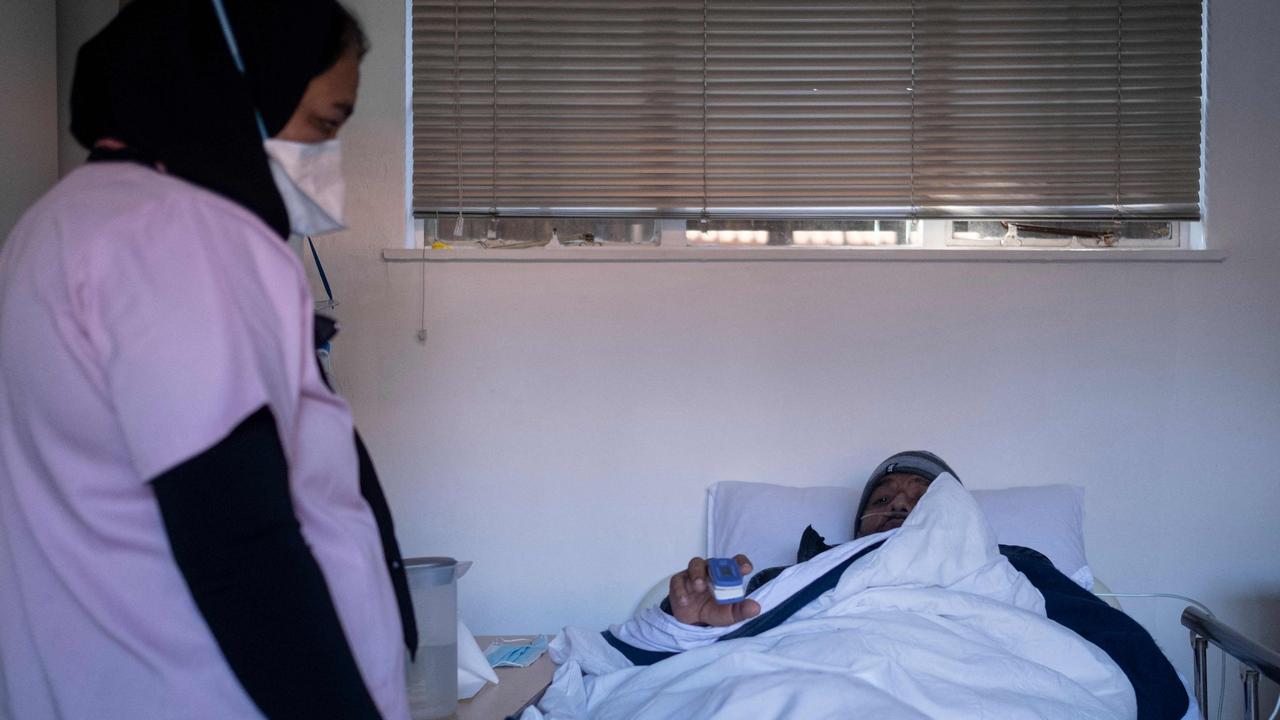
Nigeria has seen an increase of more than 4500 cases since July 10, with its seven-day rolling average of daily new cases more than doubling.
In Liberia, where only 0.18 per cent of people have had both doses of the vaccine, case numbers rose 144 per cent from June 1 to July 21.
In Senegal, which had been ahead in the fight against the virus, numbers rose from 380 on July 10 to 1700 on July 18, the highest number since the pandemic began, according to the Ministry of Health.
Under-reporting is an issue too. The main cemetery in Dakar, Senegal, is seeing large numbers of funerals, and it is suspected many of these were due to Covid-19, though they have not necessarily been recorded as such.
RELATED: Hitting this vaccine target could set Australia free
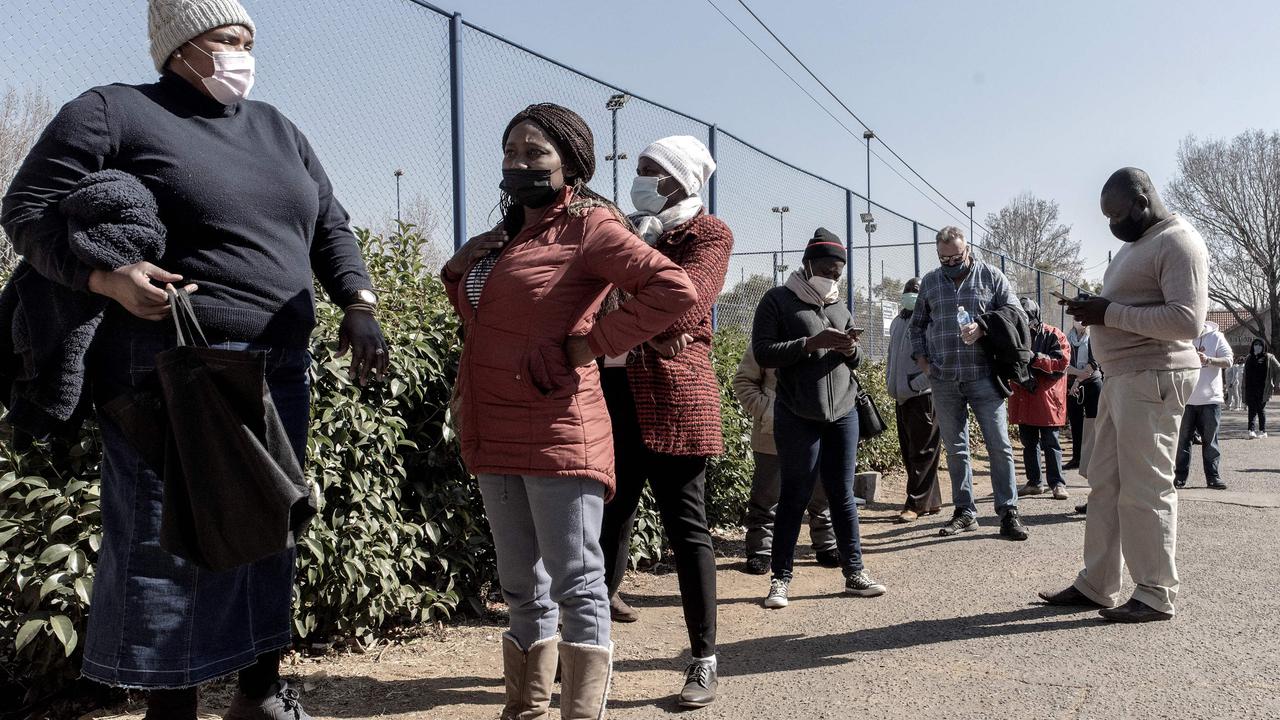
Less than 2 per cent of the continent has been fully vaccinated, and it is expected that 70 per cent of African nations will not meet their 10 per cent WHO vaccination target by the end of September.
Supply is a problem, with countries struggling to get hold of vaccines.
Pfizer recently announced it will make its vaccine locally in Africa to be used in the continent from next year, Fortune reports. But experts say it may be too late.
“From day one, our goal has been to provide fair and equitable access of the Pfizer-BioNTech Covid-19 Vaccine to everyone, everywhere,” Pfizer CEO Albert Bourla said.
Oxfam America senior advocacy manager and spokesman for the People’s Vaccine Alliance Robbie Silverman called the announcement “good news”, but added: “It is simply not enough.”
Memories of highly deadly ebola
Ebola was first discovered back in 1976 but it was the outbreak in West Africa in 2014-2016 that brought it to global attention, with heartbreaking images of people dying as the disease ravaged communities.
According to WHO, ebola Haemorrhagic Fever usually starts with a sudden onset of fever, intense weakness, muscle pain, headache and sore throat.
“As the disease progresses, people commonly develop vomiting and diarrhoea, rash, impaired kidney and liver function, and in some cases, both internal and external bleeding.”
RELATED: Covid patient’s heartbreaking text message
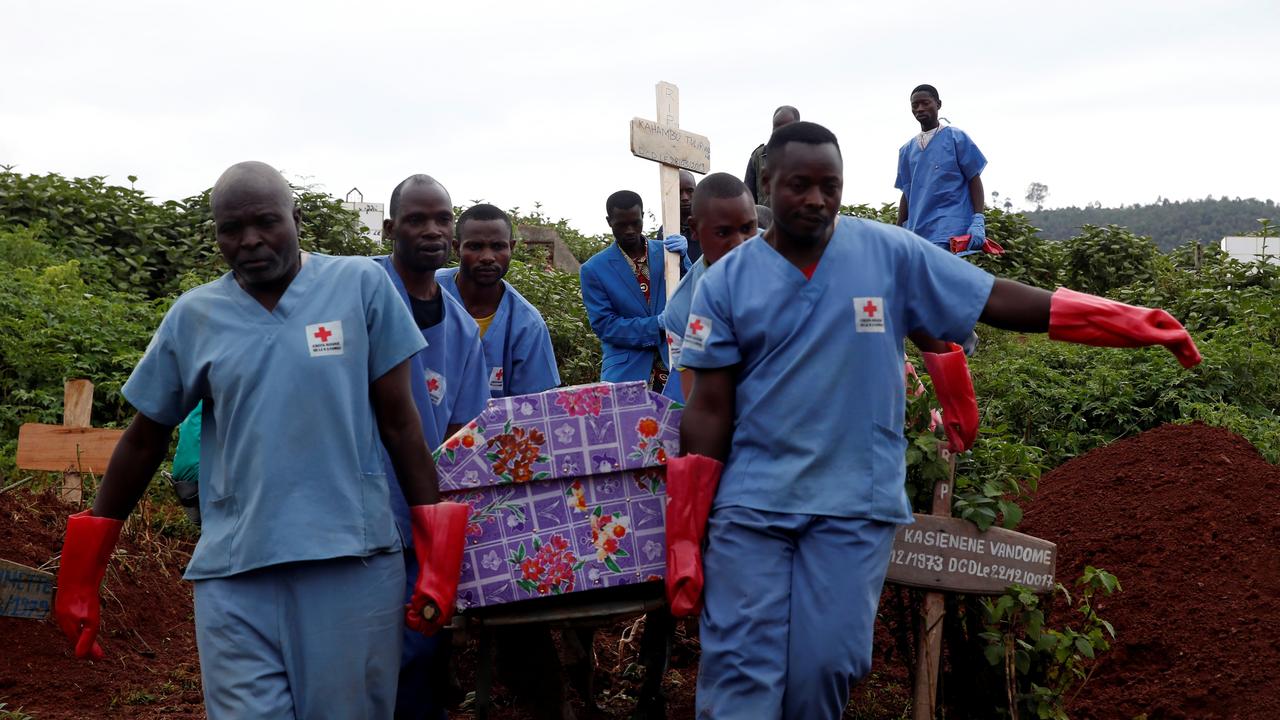
People can become infected either by coming into contact with someone with the illness or through contact with infected animals.
But because people aren’t infectious until they show symptoms, those most at risk are family members and healthcare workers.
The average fatality rate is around 50 per cent, though death rates have varied from 25 per cent to 90 per cent in past outbreaks.
The Zaire species of ebola kills somewhere between 40 per cent to 90 per cent of its victims, and usually upwards of 60 per cent of infected people die, according to Forbes.
Mosoka Fallah, who was head of case detection in Liberia during its 2014 ebola outbreak, said: “During the worst period of the ebola outbreak for Liberia, in July, August and September 2014, I saw people die in the streets.
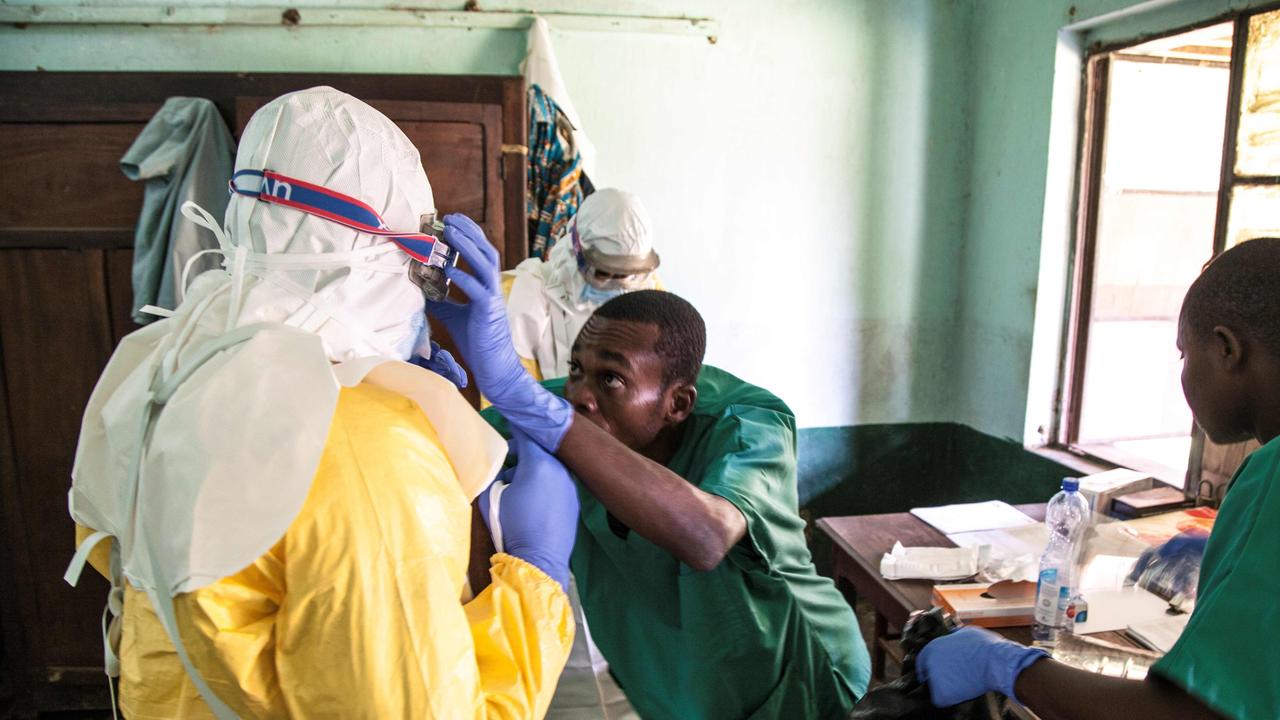
“The world largely left us to combat a global health threat alone. One ebola treatment unit built for 34 people had to serve 74 patients. The sick would wait for someone to die to free up space.”
A new ebola outbreak has recently hit the Democratic Republic of the Congo. Six new cases were identified, with four of those people dying from the virus.
“This is a reminder that Covid-19 is not the only health threat people face,” WHO director-general Tedros Adhanom Ghebreyesus said in a statement.
So why is Covid-19 deadlier than ebola in Africa?
Although ebola is far deadlier than Covid-19, the nature of its illness is different to coronavirus.
Dr Mark Kortepeter, a US biodefence expert, explained in an article he wrote for Forbesthat most viruses “don’t really like to kill their hosts”.
“This allows them to circulate in the community much longer and spread far and wide across the world for far greater impact,” he said.
“When someone becomes ill with Ebola virus, they become bedridden very quickly. It’s really hard to be out in the community spreading disease if you are vomiting or having massive diarrhoea.
“The people who are at greatest risk for ebola infection are those who have very close contact taking care of the sick, bedridden victims – whether they are in the home or the hospital.”
This is echoed by Mosoka Fallah.
“The number of graves being dug each day in Liberia recalls the 2014 ebola catastrophe. Like ebola, Covid-19 infects and kills a disproportionate number of healthcare workers, and Liberia already has far too few.”
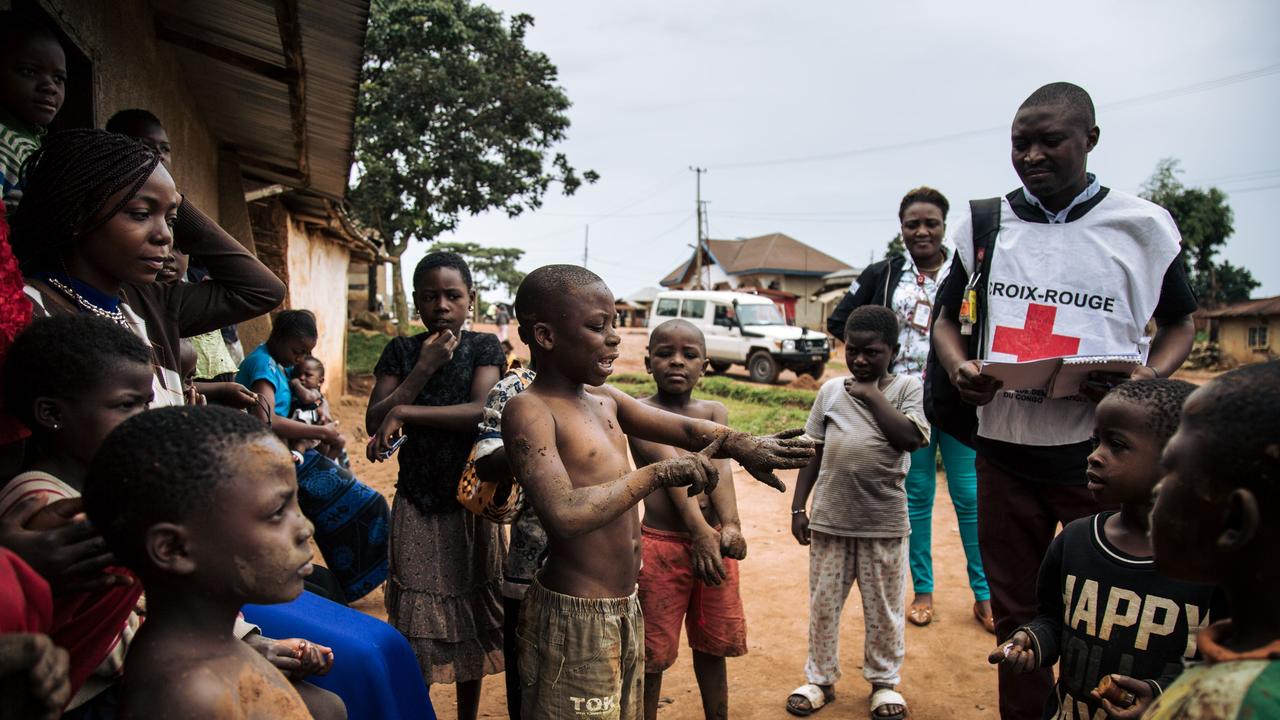
Dr Kortepeter also explained another key difference between coronavirus and ebola which has led to the higher death rate.
“Ebola virus doesn’t spread until the victim has symptoms. This makes determining who is infected with ebola and deciding who to isolate and quarantine much simpler than with Covid-19.
“Some infected people can spread Covid-19 without symptoms or before they have symptoms. Such individuals won’t be bedridden at the time they are contagious. Instead, they can hang out at a beach party or in a bar and be spreading the virus without even knowing they have been infected. The more contagious a human host is, and the more social interactions they have in the community, the more opportunities there are for a virus to spread during those interactions, and the more it will spread.”
He said it underlines the importance of the social health measures that have been promoted since the beginning of the Covid-19 pandemic including quarantine, isolation, social distancing and masks.
“This is the bedrock behind the measures that public health authorities have been championing since the beginning of the Covid-19 pandemic,” he said.
“We don’t know by looking at someone whether they are infected.”



